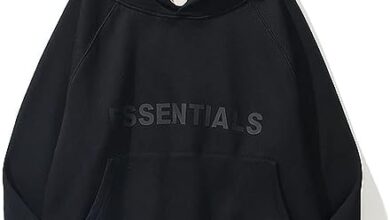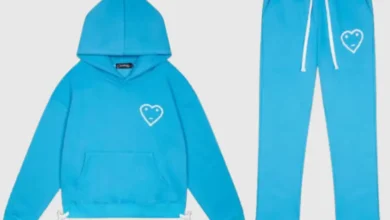Embracing Sustainability: A Shift in Fashion Paradigm
The fashion industry, once synonymous with glamour and innovation, finds itself at a pivotal juncture. Visit now https://celinehoodieshop.co/ With growing awareness of environmental and ethical concerns, stakeholders across the globe are calling for a radical transformation in the way fashion operates. This shift signals a long-overdue reckoning, compelling brands to reassess their practices and embrace sustainability as a core principle.
Environmental Impact and Conscious Consumption
At the heart of the fashion industry’s reckoning lies its profound environmental footprint. From textile production to garment manufacturing and distribution, every stage of the supply chain contributes to pollution, resource depletion, and waste accumulation. The quest for fast fashion has exacerbated these issues, perpetuating a cycle of consumption and disposal that strains our planet’s finite resources.
Consumers, however, are increasingly scrutinizing the origins of their clothing and demanding transparency from brands. The rise of eco-consciousness has sparked a burgeoning movement towards sustainable fashion, where quality and durability take precedence over fleeting trends. As consumers embrace mindful consumption, they seek out brands that prioritize ethical sourcing, fair labor practices, and eco-friendly materials.
Innovation and Technology: Driving Sustainable Solutions
In response to mounting pressure, fashion brands are harnessing the power of innovation and technology to pioneer sustainable solutions. From utilizing recycled materials and bio-based fabrics to adopting zero-waste production techniques, industry leaders are reimagining traditional processes to minimize environmental impact.
Furthermore, advancements in 3D printing, virtual prototyping, and supply chain transparency are revolutionizing the way garments are designed, produced, and distributed. These technologies not only enhance efficiency and agility but also enable brands to trace the journey of each product from inception to delivery, instilling confidence and accountability in consumers.
Diversity, Inclusion, and Social Responsibility
Beyond environmental considerations, the fashion industry’s reckoning extends to matters of diversity, inclusion, and social responsibility. Historically, the industry has grappled with issues of representation, exploitation, and discrimination, perpetuating narrow beauty standards and marginalizing underrepresented voices. Check it now https://representofficials.com/
Championing Diversity in Fashion
In recent years, there has been a growing push for diversity and inclusivity within the fashion landscape. From runway shows to advertising campaigns, brands are embracing body positivity, racial diversity, and gender inclusivity as central tenets of their ethos. By featuring models of varying sizes, ethnicities, and identities, fashion houses are challenging antiquated norms and celebrating the rich tapestry of human experience.
Ethical Labor Practices and Fair Trade
Furthermore, the fashion industry is confronting the pervasive issue of labor exploitation and human rights violations within its supply chains. The rise of ethically-conscious consumers has spurred calls for greater transparency and accountability, prompting brands to prioritize fair wages, safe working conditions, and collective empowerment.
Through initiatives such as Fair Trade certification and ethical sourcing agreements, brands are forging partnerships with artisans and workers worldwide, ensuring that their contributions are valued and respected. By championing ethical labor practices, the fashion industry can uplift communities, foster economic empowerment, and pave the way for a more equitable future.
Conclusion: Towards a Sustainable and Inclusive Future
The fashion industry’s long-overdue reckoning signifies a paradigm shift towards sustainability, diversity, and social responsibility. As consumers become more discerning and conscientious, brands must adapt to meet evolving expectations and embrace their role as catalysts for positive change.
By prioritizing innovation, transparency, and ethical practices, the fashion industry can transcend its legacy of excess and exploitation, ushering in a new era of conscientious consumption and collective empowerment. Together, we have the opportunity to redefine fashion’s narrative, transforming it into a force for good that celebrates diversity, preserves our planet, and uplifts humanity.





